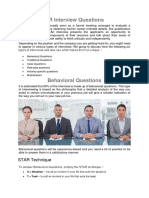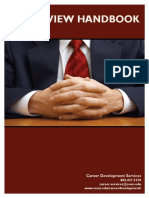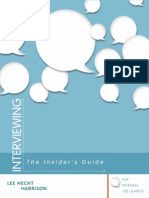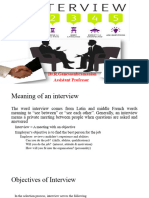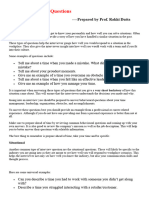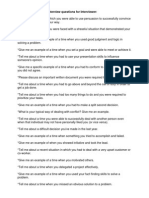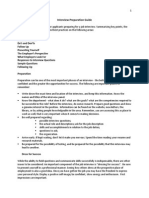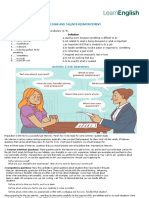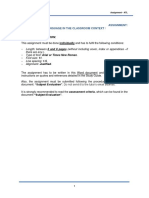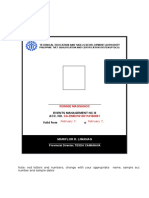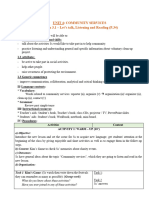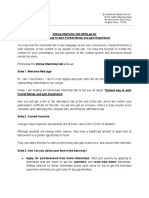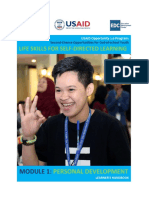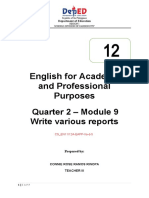0% found this document useful (0 votes)
420 views9 pagesAslant Legal - Candidate - Interview - Guide
The document provides guidance on preparing for a successful job interview. It outlines key tips which include familiarizing yourself with your resume and the job description, researching the interviewer and organization, and understanding different interview styles like competency-based interviews. The document also provides examples of common situational interview questions and suggests how to respond to demonstrate skills and strengths.
Uploaded by
p3s3hgtvCopyright
© © All Rights Reserved
We take content rights seriously. If you suspect this is your content, claim it here.
Available Formats
Download as PDF, TXT or read online on Scribd
0% found this document useful (0 votes)
420 views9 pagesAslant Legal - Candidate - Interview - Guide
The document provides guidance on preparing for a successful job interview. It outlines key tips which include familiarizing yourself with your resume and the job description, researching the interviewer and organization, and understanding different interview styles like competency-based interviews. The document also provides examples of common situational interview questions and suggests how to respond to demonstrate skills and strengths.
Uploaded by
p3s3hgtvCopyright
© © All Rights Reserved
We take content rights seriously. If you suspect this is your content, claim it here.
Available Formats
Download as PDF, TXT or read online on Scribd
/ 9



